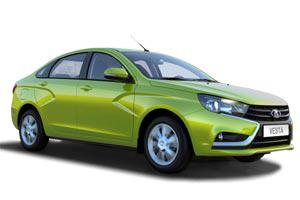Fri, 10 May 2024
Compare Peugeot 208 (2012-2015) 1.0 VTi and Hyundai i20 (2018-2020) 1.2
Technical specifications
| Clear list | Peugeot 208 (2012-2015) | Hyundai i20 (2018-2020) |
| Totals | Peugeot 208 (2012-2015) 1.0 VTi × | Hyundai i20 (2018-2020) 1.2 × |
| Mark | Peugeot | Hyundai |
| Model | 208 (2012-2015) 1.0 VTi | i20 (2018-2020) 1.2 |
| Year | 2012-2015 | 2018-2020 |
| Number of doors/seats | (3-5)/5 | 5/5 |
| Body type | Hatch | Hatch |
| Unladen Weight | 975 (980) | 980 |
| Gross Weight Limit | 1480 (1485) | 1580 |
| Top Speed, km/h | 163 | 170 |
| Acceleration 0-100 kph | 14 | 12.8 |
| Minimum turning radius, m | 5.6 | 5.1 |
| Cargo Volume, min/max, L | 285/1076 | 301/1017 |
| Dimensions specifications, mm | Peugeot 208 (2012-2015) 1.0 VTi × | Hyundai i20 (2018-2020) 1.2 × |
| Length | 3962 | 4035 |
| Width | 1739 | 1734 |
| Height | 1460 | 1474 |
| Wheelbase | 2538 | 2570 |
| Front/rear Track | 1475/1471 | - |
| Ground clearance | - | 140 |
| Engine specifications | Peugeot 208 (2012-2015) 1.0 VTi × | Hyundai i20 (2018-2020) 1.2 × |
| Type | petrol Injection | petrol Injection |
| Displacement, cm3 | 999 | 1248 |
| Compression ratio | 11 | 10.5 |
| Number and arrangement of cylinders | 3 cylinders, in-line | 4 cylinders, in-line |
| The diameter of the cylinder x stroke, mm | 71х84.1 | 71x78.8 |
| Number of valves | 12 | 16 |
| Power, hp/rpm | 67/6000 | 84/6000 |
| Max torque, Nm/RPM | 95/3000 | 122/4000 |
| Transmission specifications | Peugeot 208 (2012-2015) 1.0 VTi × | Hyundai i20 (2018-2020) 1.2 × |
| Gearbox | 5-speed manual | 5-speed manual |
| Drive Type | Front wheel drive | Front wheel drive |
| Suspension specifications | Peugeot 208 (2012-2015) 1.0 VTi × | Hyundai i20 (2018-2020) 1.2 × |
| Front | MacPherson strut | MacPherson strut |
| Rear | Dependent suspensions | Dependent suspensions |
| Tire Size | 185/65 R15, 195/55 R16, 205/45 R17 | 185/65 R15, 195/55 R16 |
| Disk | 4x108 ET27 d65.1
| 4x100 ET45 d54
|
| Brakes specifications | Peugeot 208 (2012-2015) 1.0 VTi × | Hyundai i20 (2018-2020) 1.2 × |
| Front | Ventilated discs | Ventilated discs |
| Rear | Drums | Drums |
| Fuel consumption specifications, L/100 km | Peugeot 208 (2012-2015) 1.0 VTi × | Hyundai i20 (2018-2020) 1.2 × |
| City | 5.2 | 7 |
| Highway | 3.7 | 5 |
| Combined | 4.3 | 5.8 |
| Fuel | 95 | 95 |
| Tank, L | 50 | 50 |
| Clear list | Peugeot 208 (2012-2015) | Hyundai i20 (2018-2020) |













